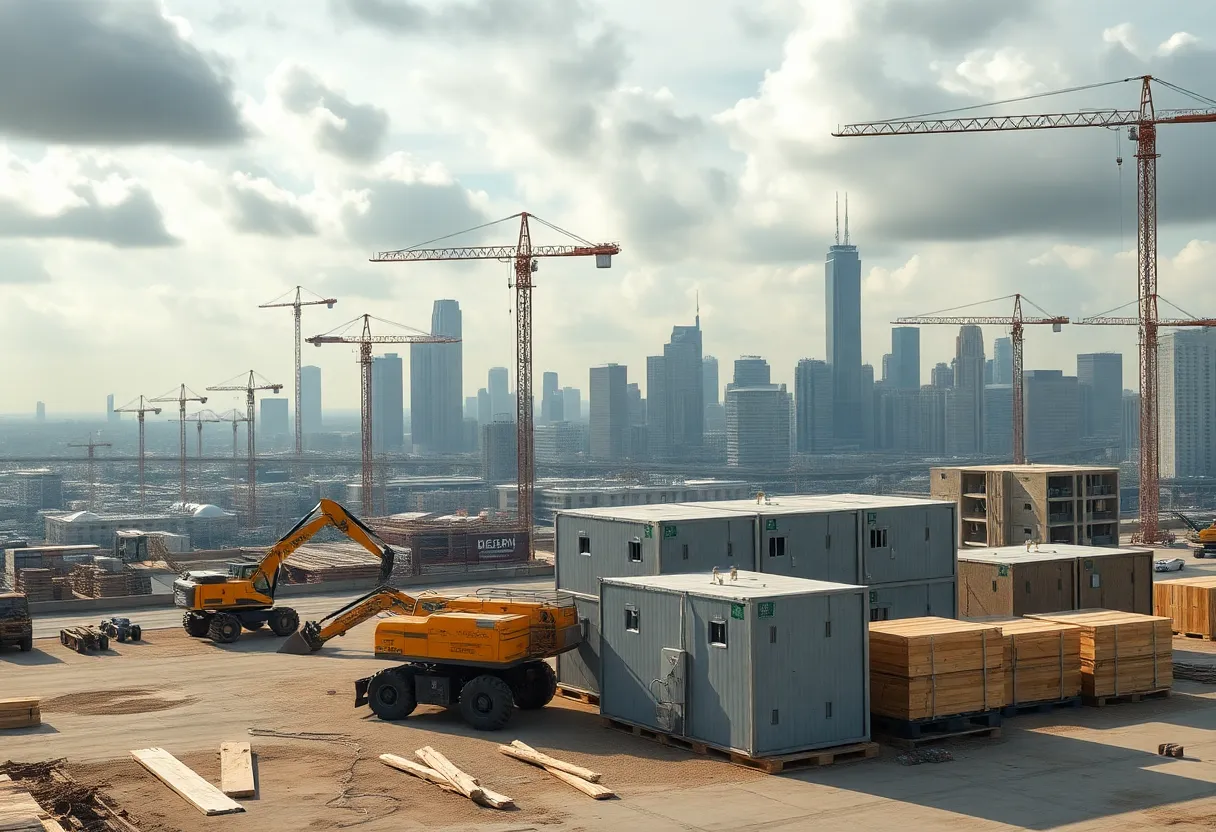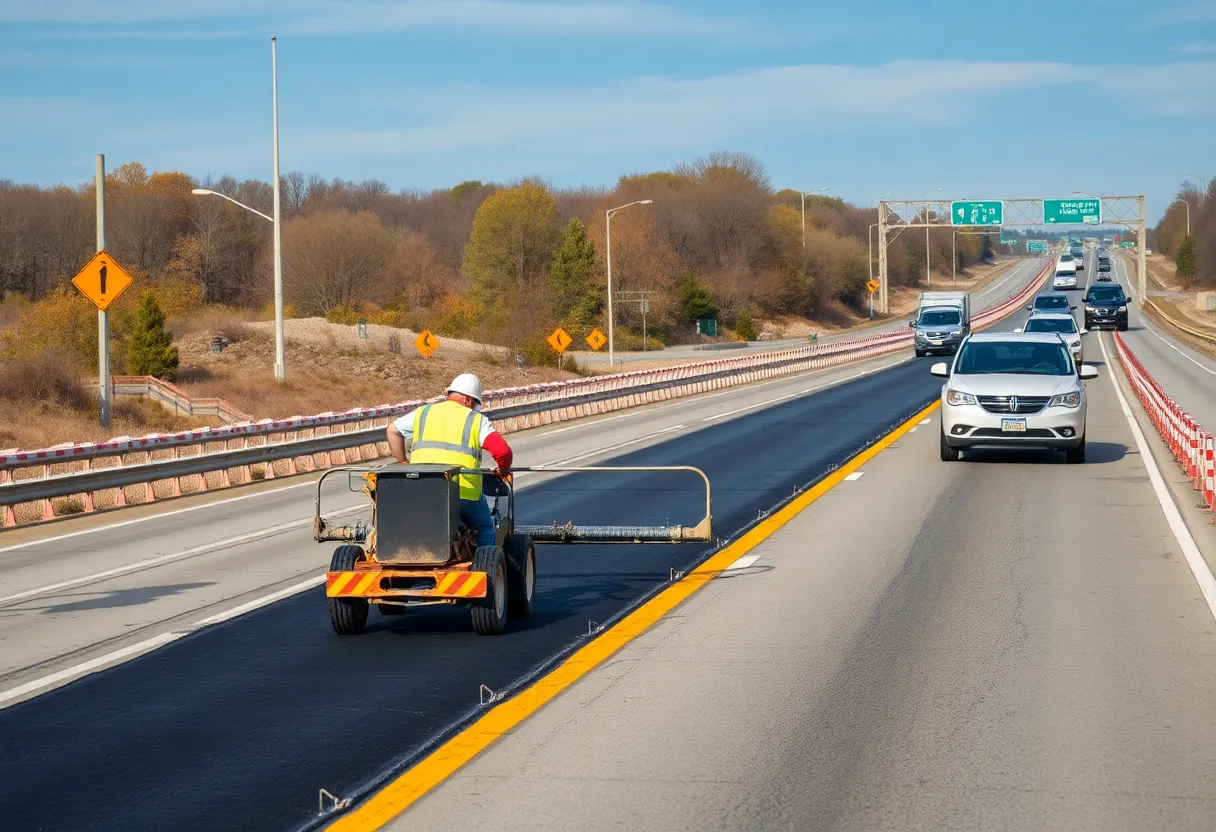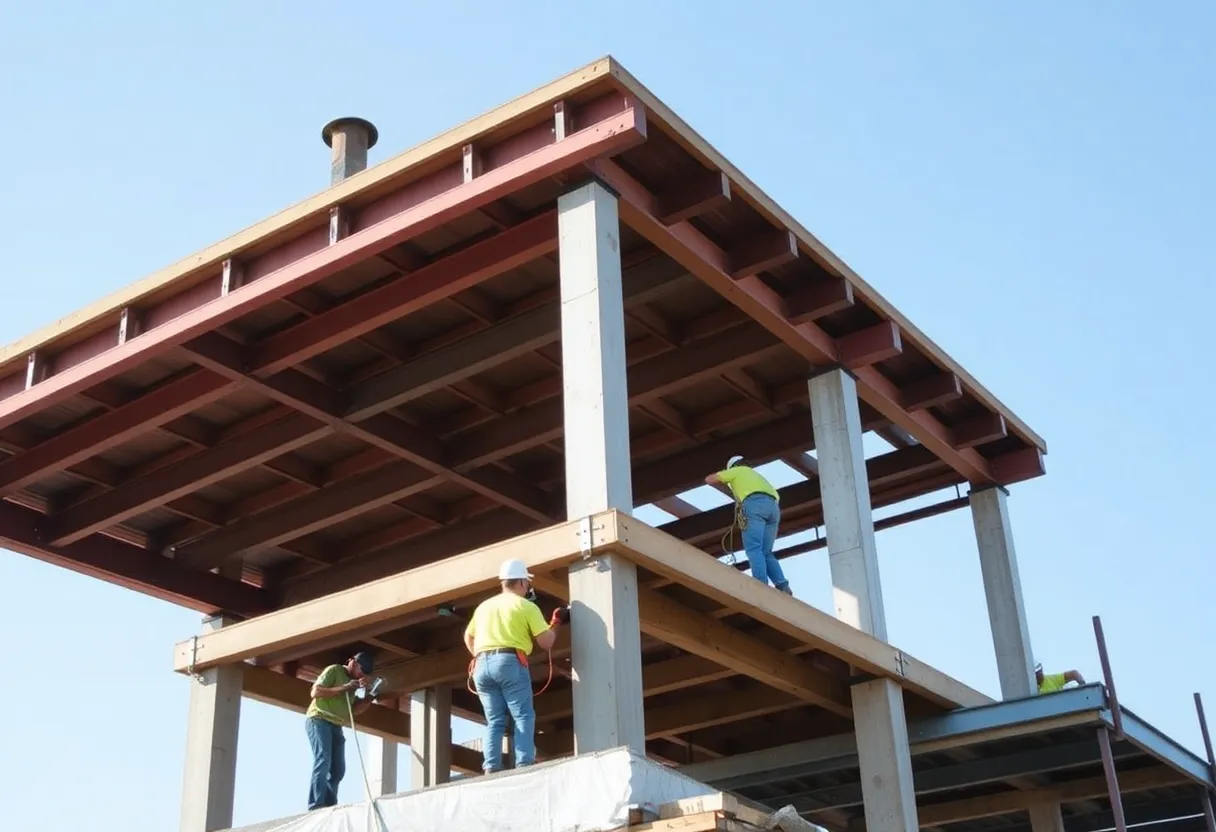United States, September 2, 2025
News Summary
The US construction market is valued at approximately USD 1.90 trillion and is forecast to reach about USD 2.92 trillion over the coming decade, driven by large-scale infrastructure investment, commercial development, and manufacturing expansion. Rapid adoption of digital and automated technologies — including AI, BIM, 3D printing, AR, telematics and IoT — is improving schedule reliability, safety and collaboration. Equipment trends favor telematics, machine controls and electrification, while modular and prefabrication methods expand. Persistent skilled labor shortages and commodity volatility remain risks, and sustainability, low-carbon materials and predictive maintenance are shaping future competitiveness.
United States Construction Market Tops USD 1.90 Trillion in 2024; Forecast to Reach USD 2.92 Trillion by 2034
Key takeaway: The United States construction market was valued at approximately USD 1.90 trillion in 2024 and is projected to grow at a 4.40% compound annual growth rate from 2025 to 2034, reaching about USD 2.92 trillion by 2034. This outlook reflects a mix of large-scale infrastructure investment, rising commercial building activity, and accelerated technology adoption across the sector.
Why the market is growing
Primary growth is being driven by a surge in public and private infrastructure projects and a government push to upgrade ageing transportation, energy, and digital networks. Investment is targeting roads, bridges, freight rail, ports, electrical grids, and broadband expansion. At the same time, expansions in manufacturing facilities for electronics and components and rising private-sector commercial development are supporting demand for new and upgraded facilities.
Technology and sustainability are reshaping construction
The sector is adopting digital and automated solutions at pace. Key technologies gaining traction include artificial intelligence (AI), building information modeling (BIM), 3D printing, augmented reality, telematics and machine controls for heavy equipment, and IoT systems that enable smart buildings. These technologies aim to improve schedule reliability, reduce costly errors, enhance safety, and boost collaboration between stakeholders.
Digital trends are supported by strong industry indicators: a large share of firms now report AI strategies, VDC/BIM adoption is widespread, and construction management software usage continues to rise. Modular and prefabrication approaches are expanding, notably in healthcare, multifamily, and hospitality applications.
Market segments and where growth is expected
Additions — expansions and upgrades to existing structures — are expected to command a substantial portion of market share in coming years as governments and owners modernize assets. Commercial construction, which covers offices, manufacturing plants, medical centers and shopping centers, is forecast to show significant growth, driven by new private firms and retail expansion in developing states and an increasing share of green buildings.
Construction equipment and materials trends
The North America construction equipment market was valued at USD 22.11 billion in 2024 and is expected to reach USD 26.92 billion by 2030, supported by capital spending on infrastructure and housing. Equipment trends include wider use of telematics, machine control, and electric or hybrid powertrains as sustainability rules and operating-cost pressures push fleets toward lower emissions. Equipment rental revenues are rising, and predictive maintenance is becoming common to cut downtime.
Workforce and cost pressures
A major constraint is the skilled labor shortage. The industry needs roughly 439,000 net new workers in 2025 to meet demand, and surveys report widespread hiring difficulty. Labor gaps are contributing to project delays and rising costs. Enrollment in trades and training programs is improving, but the demographic trend of an aging workforce remains a medium-term challenge.
Safety, waste and materials innovation
Safety technology adoption — from drones and wearables to automated monitoring — is rising, driven by a persistent share of workplace fatalities and the costs of rework. Innovations in low-carbon and bio-based materials, along with attention to embodied carbon, are increasingly important as owners and regulators push for sustainability and lifecycle savings.
Competitive landscape and report scope
A detailed market analysis provides company profiles, competitive dynamics, Porter’s Five Forces and SWOT evaluations, and regional and segment forecasts. Large firms analyzed include longstanding contractors and developers active across residential, commercial and heavy civil markets. The full report covers historical data (2018–2024), a 2025–2034 forecast, and regional breakdowns across U.S. census regions.
Selected data points from related industry sources
- Total construction spending: USD 2.07 trillion at a seasonally adjusted annual rate in April 2025 (Census Bureau).
- Private fixed investment in equipment: growth of 4.1% in Q1 2025 (Bureau of Economic Analysis).
- Energy and electrification: renewable energy consumption up by 13% in 2024, supporting electrification in heavy equipment.
- Digital tools: BIM markets and construction software sectors are expanding, helping reduce timelines and cost overruns.
Risks and watch items
Challenges include skilled labor shortages, volatile commodity prices (notably steel and fuel), regulatory compliance costs for low-emission equipment, and supply chain pressures for specialized materials and electronics. Market growth depends on steady public funding, private investment trends, and continued uptake of productivity-enhancing technologies to offset labor constraints.
Where to find the full market analysis
The market study and related equipment analysis are available for purchase through the report provider’s listing. The research package includes extensive appendices on market drivers, company strategies, regional forecasts, and scenario analysis for industry stakeholders and investors.
FAQ
What is the current size and forecast for the U.S. construction market?
The U.S. construction market was about USD 1.90 trillion in 2024 and is forecast to reach roughly USD 2.92 trillion by 2034, growing at an estimated 4.40% CAGR from 2025–2034.
What factors are driving market growth?
Major drivers include federal and state infrastructure spending, upgrades to ageing networks, new commercial and manufacturing development, green building demand, and the adoption of digital and automated construction technologies.
Which construction segments are expected to expand most quickly?
Additions (expansions and upgrades) and commercial construction are expected to account for significant growth, supported by public upgrades and private-sector expansion, as well as stronger demand for energy-efficient buildings.
How is technology affecting construction productivity?
Technologies including AI, BIM, 3D printing, drones, and telematics are improving planning, reducing on-site errors, shortening schedules, and supporting safety and equipment efficiency, though adoption levels vary across firms.
What are the main industry risks?
Key risks include a persistent skilled labor shortage, commodity price volatility, supply-chain disruptions, and regulatory costs tied to emissions and sustainability standards.
Key Features at a Glance
| Feature | Detail |
|---|---|
| Market size (2024) | USD 1.90 trillion |
| Forecast (2034) | USD 2.92 trillion at 4.40% CAGR (2025–2034) |
| Primary growth drivers | Infrastructure upgrades, commercial development, manufacturing expansion, and green building demand |
| Major trends | AI, BIM, 3D printing, AR, IoT-enabled smart buildings, electrification of equipment |
| Equipment market (North America) | USD 22.11 billion (2024); projected USD 26.92 billion by 2030 |
| Workforce challenge | Need for ~439,000 net new workers in 2025; widespread hiring difficulty |
| Segment focus | Additions and Commercial construction expected to hold strong shares |
Source material: market analyses and industry data compiled from a 2025–2025 research package covering U.S. construction market size, segments, trends, and related North America equipment market analysis.
Deeper Dive: News & Info About This Topic
Additional Resources
- ResearchAndMarkets / Business Wire: United States Construction Industry Report 2025–2034
- Wikipedia: Construction industry in the United States
- GlobeNewswire: North America Construction Equipment Industry Report 2025
- Google Search: North America construction equipment market 2025
- JLL: 2025 Construction Perspective — US midyear update
- Google Scholar: JLL 2025 construction perspective
- KVUE: Austin tops list — apartments built in United States (BoomTown 2040)
- Encyclopedia Britannica: Search — Austin apartments BoomTown 2040
- WSMV: Nashville among top US metros — new construction homes report
- Google News: Nashville new construction homes 2025
Author: Construction FL News
The FLORIDA STAFF WRITER represents the experienced team at constructionflnews.com, your go-to source for actionable local news and information in Florida and beyond. Specializing in "news you can use," we cover essential topics like product reviews for personal and business needs, local business directories, politics, real estate trends, neighborhood insights, and state news affecting the area—with deep expertise drawn from years of dedicated reporting and strong community input, including local press releases and business updates. We deliver top reporting on high-value events such as the Florida Build Expo, major infrastructure projects, and advancements in construction technology showcases. Our coverage extends to key organizations like the Associated Builders and Contractors of Florida and the Florida Home Builders Association, plus leading businesses in construction and legal services that power the local economy such as CMiC Global and Shutts & Bowen LLP. As part of the broader network, including constructioncanews.com, constructionnynews.com, and constructiontxnews.com, we provide comprehensive, credible insights into the dynamic construction landscape across multiple states.





